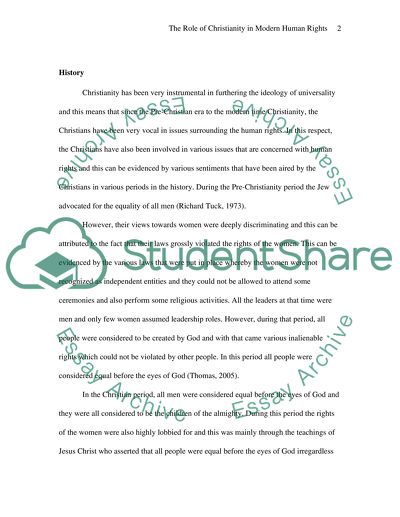Cite this document
(“Christianity and Human Rights Essay Example | Topics and Well Written Essays - 2000 words”, n.d.)
Christianity and Human Rights Essay Example | Topics and Well Written Essays - 2000 words. Retrieved from https://studentshare.org/religion-and-theology/1520257-christianity-and-human-rights
Christianity and Human Rights Essay Example | Topics and Well Written Essays - 2000 words. Retrieved from https://studentshare.org/religion-and-theology/1520257-christianity-and-human-rights
(Christianity and Human Rights Essay Example | Topics and Well Written Essays - 2000 Words)
Christianity and Human Rights Essay Example | Topics and Well Written Essays - 2000 Words. https://studentshare.org/religion-and-theology/1520257-christianity-and-human-rights.
Christianity and Human Rights Essay Example | Topics and Well Written Essays - 2000 Words. https://studentshare.org/religion-and-theology/1520257-christianity-and-human-rights.
“Christianity and Human Rights Essay Example | Topics and Well Written Essays - 2000 Words”, n.d. https://studentshare.org/religion-and-theology/1520257-christianity-and-human-rights.


